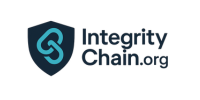Ethics vs. Compliance: How Cultures Perceive Truth-Telling

In an era where headlines are filled with corporate scandals, government leaks, and whistleblower protections (or lack thereof), one question cuts through the noise: why do some people report wrongdoing while others stay silent? The answer lies not only in the rules we follow, but in how our cultures understand the difference between ethics and compliance—and the act of truth-telling itself.
Compliance is about following rules. Ethics is about doing what’s right, even when there are no rules—or when the rules themselves are wrong. In many cultures, these concepts clash, intersect, or merge in surprising ways. This editorial explores how societies shape the willingness (or unwillingness) of individuals to speak up, and what that means for building truly ethical systems in business and governance.
I. Defining the Divide: Ethics vs. Compliance
Compliance is the formal, rule-based system designed to prevent, detect, and respond to misconduct. It’s measurable, enforceable, and typically defined by law or corporate policy.
Ethics, on the other hand, concerns moral principles—what one ought to do, even when no one is watching. It’s shaped by personal beliefs, culture, and social values.
| Compliance | Ethics |
|---|---|
| "What must I do?" | "What should I do?" |
| Law- or policy-driven | Morally or socially driven |
| Enforced through audits, penalties | Enforced through conscience, peer approval |
| Measurable, trackable | Intangible, value-based |
| Reactive | Proactive |
Whistleblowers often act at the intersection of these two domains: breaking formal rules (e.g., NDAs or secrecy laws) to uphold ethical truths (e.g., public safety, democracy, or justice).
II. Cultural Perceptions of Truth-Telling
How a society views whistleblowing—heroic or dishonorable—depends on its collective relationship with authority, harmony, and individual agency.
1. Western Liberal Democracies
- Often embrace individual conscience as a moral compass.
- Systems like the U.S. reward whistleblowers under the idea of "checking power."
- Speaking truth to power is seen as part of democracy.
Example:
In the U.S., Edward Snowden and Frances Haugen received both criticism and admiration, but their actions were debated in mainstream culture as moral decisions.
2. East Asian Societies (Japan, South Korea, China)
- Emphasize group harmony, hierarchy, and loyalty.
- Whistleblowing can be perceived as betrayal or face-loss to the group.
- Truth-telling may be discouraged if it disrupts social order.
Example:
Before reforms, South Korean whistleblowers often lost jobs or were blacklisted. Only with the ACRC’s intervention and cultural shift have public perceptions started to improve.
3. Scandinavian Countries
- High-trust, low-corruption cultures.
- Whistleblowing is often handled internally, with less need for dramatic exposure.
- Truth-telling is embedded in civic identity rather than seen as radical.
Example:
In Sweden, the concept of offentlighetsprincipen (principle of public access) fosters open institutions, where internal reporting is more normalized than in other regions.
4. Authoritarian Regimes
- Power structures are often protected at all costs.
- Compliance is demanded; ethics are defined top-down.
- Truth-telling can be criminalized.
Example:
In Russia or China, whistleblowers face prison, exile, or worse. The line between “disclosure” and “state sabotage” is often blurred.
III. Compliance Without Ethics: The Danger of Technocratic Governance
When organizations obsess over compliance but ignore ethics, they may meet legal standards while still engaging in harmful practices.
- Volkswagen Dieselgate: Engineers followed internal directives but lied about emissions.
- Theranos: Employees followed NDAs while their silence enabled medical fraud.
- Cambridge Analytica: Legally sourced data was used in ways that undermined democratic integrity.
In each case, whistleblowers or internal dissenters chose ethics over compliance, at great personal risk.
Question: Is it enough to follow the rules when the rules themselves are broken?
IV. Ethical Courage: The Missing Metric
Modern compliance programs often fail because they don’t foster ethical courage—the ability to speak up when something feels wrong.
What drives people to report wrongdoing?
- Moral clarity: A strong sense of right vs. wrong.
- Empathy: The willingness to protect others, even at personal cost.
- Civic identity: A belief that truth serves the greater good.
This courage varies by industry and culture:
- Doctors may report unsafe medical practices despite legal risk.
- Engineers may leak documents to prevent a future disaster.
- Teachers may expose falsified records to protect students.
These individuals aren’t just “compliant”—they’re guided by an internal compass no rulebook can define.
V. Creating Ethical Cultures Across Borders
Building systems that value truth over silence requires more than policies—it requires cultural rewiring.
1. Leadership by Example
- Ethical tone at the top is critical.
- Leaders must be seen actively supporting truth-telling.
2. Cultural Literacy
- Multinational companies must understand that a compliance checklist in one country could be perceived as betrayal in another.
- Ethics training should be culturally contextualized.
3. Safe Reporting Channels
- Anonymous hotlines.
- Independent compliance teams.
- Guaranteed protection and feedback loops.
4. Ethical Narratives
- Celebrating whistleblowers as courageous, not disloyal.
- Using internal storytelling (not just laws) to normalize ethical action.
VI. Philosophical Thought: Can Compliance Replace Ethics?
Modern organizations often attempt to codify everything into compliance matrices. But can this ever fully replace human ethics?
Short answer: No.
- Ethics deals with ambiguity. Compliance doesn’t.
- Ethics applies even when the rulebook is silent.
- Compliance is externally imposed. Ethics is internal.
When the two align, systems flourish. When they diverge, we get organizations that are “legally clean” but morally bankrupt.
VII. Conclusion: Ethics Is the First Line of Defense
As global systems grow more complex and AI begins to automate monitoring and reporting (a topic we’ll address in the next editorial), it’s tempting to rely on rules over conscience.
But in the end, it’s not policies or algorithms that stop corruption—it’s people.
The cultures that nurture ethical courage and truth-telling will not only produce more whistleblowers, but fewer reasons to need them.


